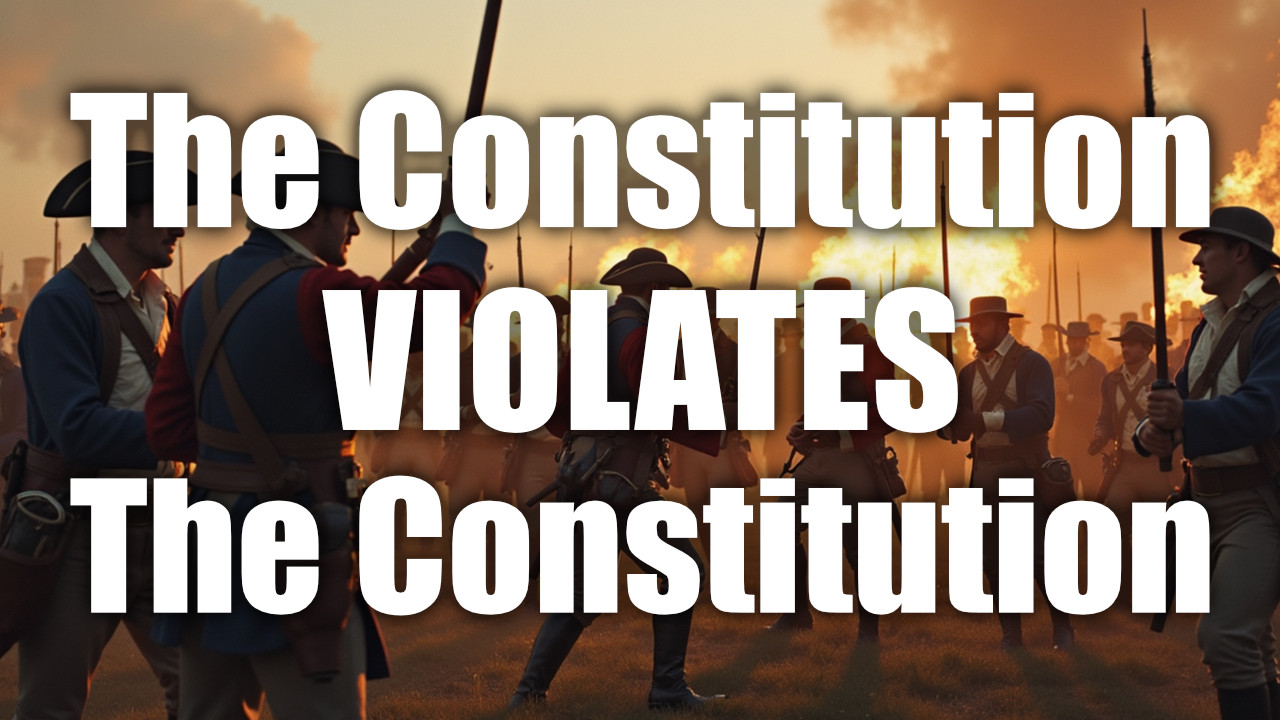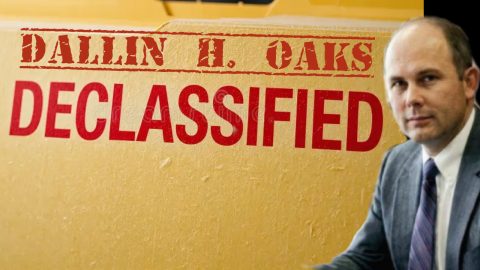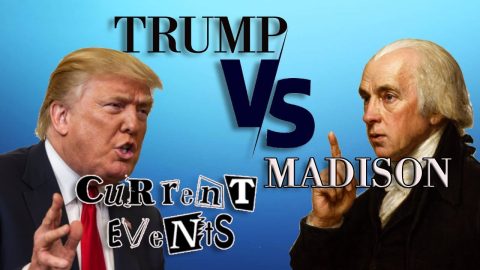What if an amendment to the Constitution actually violated one of the Articles of the Constitution? Could it happen? Has it happened already? Find out!
This is an excerpt from Ben McClintock’s keynote presentation at the 2025 Constitution Party convention, entitled “Make America STATES Again!” Watch the whole presentation here: https://youtu.be/eJmEaCCcoL4
Help support ad-free content with a one time donation or becoming a member today.
Thank you to our sponsors
https://connollyandsonsconcrete.com/
https://www.dentistry4health.org
http://www.highercallingfirearms.com
http://www.americanappliancehvac.com
https://insurewithcompass.com/sbarlow.html
TRANSCRIPT
So Article 5 talking about preserving the contract that because who who created the contract again?
It was the states they came together and they said we agree to delegate these certain things.
So they’ve come together so article 5 of the Constitution is what was added to the contract to allow the states to be able to preserve their power and so as we go through it’s preserving their voice.
We look at what it says.
So protecting the voice of the states, it says that no state without its consent shall be deprived of its equal suffrage in the Senate.
So the state as a political body cannot without its permission have its suffrage.
If you remember the suffrage for women, right?
So suffrage means votes.
So the state government’s vote cannot be taken from it without its consent, meaning without its permission.
So why did they, why did they do that?
They called it the unamendable clause because they couldn’t have their vote taken away without their consent.
You couldn’t have 99 out of 100 say that you don’t get your vote anymore.
They had to have everybody say, yes, you can take away my vote, okay, so it was unamendable.
So we look at the Electoral College, just kind of the same principle behind giving the states their vote is the same concept behind the Electoral College, why we don’t actually pick a president according to the popular vote.
You can just imagine what that would look like as we have these major population areas of California, of New York, and you know, and what that means.
You have the California having, you know, almost 40 million people in it, and you have New York having about 20 million people in it, and then you have states like Alaska and South Dakota having, you know, less than a million people in each of those states.
And what kind of result that that has, what that would have if it was simply done by the population. If we chose president by population, you would have one or, you know, three or four cities basically picking the president and the rest of the country would be out of it.
And so they gave us the Electoral College to make sure that the president was chosen by the states as opposed to one or two major cities across the union.
And so we look at article five again that protects the voice of the states and we look at this, you know, the city of Los Angeles with all by itself, we have it
having about 12 million people versus the entire state of Utah only having about four million.
So just the city of Los Angeles would outvote us, you know, according to the presidency, what is that?
Three times over.
And so the influence that we would lose, that all of the smaller states would lose, was in the founding fathers wanted to prevent.
And so as another check besides the electoral college, we have article five of the constitution, not having their votes taken away from them. And so here, and we look at the state of Utah and the counties within our state, where if the state had its vote taken away from it and it was given to the people like they choose the congressmen. You have basically Utah County and Salt Lake County having all of the voice in who the senator is for the state of Utah.
And so the founding fathers recognized that just like that’s a problem for the entire union, a state would have its voice taken away if it was chosen by population just as much as if the president was chosen by population and so they in the article 5 of the Constitution made sure that the states got to keep their vote and it was the state legislators that picked the senator for the US Senate and so they they called it the unamendable clause we have in the convention of 1887 it says it was feared that three -fourths of the states might be brought to do things fatal to particular states as abolishing them all together or depriving them of their equality in the Senate.
To protect this, it was added that no state be deprived of its equality in the Senate.
So no state was to have its vote taken away from them. In the convention, they also said that, in an order that no consolidation should take place, it is provided that no state shall, by any amendment or alteration, be ever deprived of an equal suffrage in the Senate without its own consent so there’s no you can’t have an amendment passed unless it was every single state said yes I agree to this it’s not like any other amendment where you just had three-fourths of the states say that they agreed to it had to be every single state agree to have its vote taken away from it and so we have the 17th amendment though that was passed in 1913 and it says the Senate of the United States shall be composed of two senators from each state elected by the people thereof.
So, it took away the vote of the states. It said, now we’re gonna give it to the people, the population centers of that state. And so, we talked about how it had to be unanimous.
So, even if one state, you didn’t have to say no to it, you just couldn’t give your assent.
If you didn’t give your approval to it, it was now an invalid amendment.
And so, we have one state rejected it and you have about seven other states that said nothing at all. They said we’re not going, you know, to make an opinion on it.
So if a state has to have its consent to have its vote taken away from it, is the 17th Amendment valid according to Article 5 of the Constitution?
No, absolutely not, because they did not give their assent to have their voice taken away from them. And so we have the state of Utah, in fact, went a step further and not only didn’t give its permission, but the state of Utah said, “No, you can’t have our vote.”
And so according to Article 5 of the Constitution, the 17th Amendment is a violation of the Constitution, which I think sounds weird to a lot of people to say that the Constitution violates the Constitution, but when you’re going to change it, you have to follow the rules of the original contract, otherwise the contract is now null and void.








